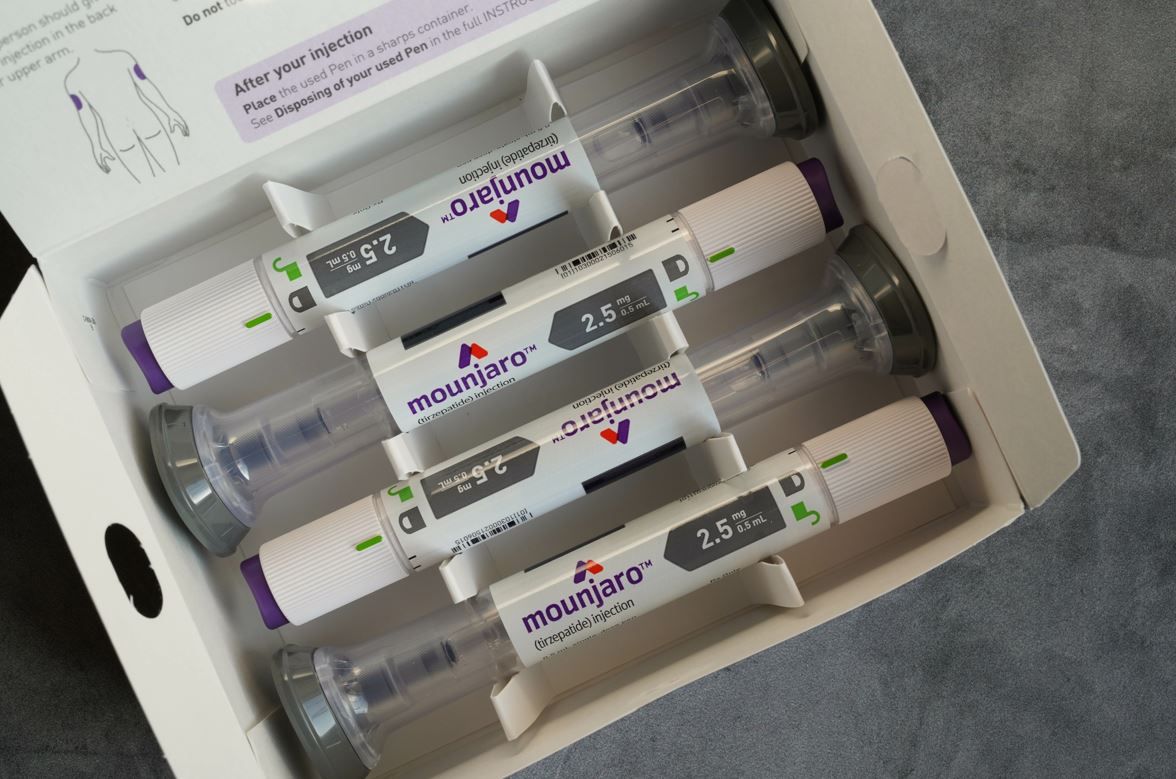- Clinical Technology
- Adult Immunization
- Hepatology
- Pediatric Immunization
- Screening
- Psychiatry
- Allergy
- Women's Health
- Cardiology
- Pediatrics
- Dermatology
- Endocrinology
- Pain Management
- Gastroenterology
- Infectious Disease
- Obesity Medicine
- Rheumatology
- Nephrology
- Neurology
- Pulmonology
FDA Faces Law Suit Over Sudden Removal of Tirzepatide from Drug Shortage List
Update: The FDA has told compounding pharmacies they may resume production of tirzepatide products while the agency further investigates supply.
UPDATE: The Outsourcing Facilities Association (OFA), which on October 8 filed suit against the US FDA for removing antiobesity and diabetes medication tirzepatide from the agency’s drug shortage list 5 days earlier, appears to have prevailed, at least temporarily, according to NBC News and other outlets this morning.
©MK Photo/stock.adobe.com

In a reversal of the decision the OFA called “reckless and arbitrary—lacking any semblance of lawful process” the FDA has said that compounding pharmacies can continue to produce and sell tirzepatide products while the agency begins a review to determine whether in fact shortages of the 2 tirzepatide-based medications Mounjaro (type 2 diabetes) and Zepbound (obesity) have been resolved as manufacturer Eli Lilly announced in early October.
The OFA, a compounding industry trade group, filed a lawsuit against the FDA on October 8, for the sudden removal of tirzepatide (Zepbound, Mounjaro; Eli Lilly) from the federal drug shortage list. The lawsuit alleges that the action was taken without the required notice and disputes the agency’s warning of “localized supply disruption,” according to a news release from OFA.1
“The FDA’s removal of tirzepatide from the shortage list without the due process of proper federal notice, at a time when they acknowledge that shortages still exist, is the definition of arbitrary and capricious,” Lee H Rosebush, chairman of OFA, said in the news release. “The agency’s decision will have tremendous implications across the nation for patients and physicians, as well as the outsourcing facilities that made an enormous investment to meet patient demand in light of product shortages and delays.”1
The lawsuit alleges that the decision is “reckless and arbitrary” and “lacking any semblance of lawful process.” According to the FDA, compounding facilities may prepare compounded versions of a drug listed on the FDA’s drug shortage life, provided the compound drugs meet the conditions of the federal law. As of October 9, there are currently 117 drugs on the drug shortage list, including amoxicillin powder for suspension, clonazepam, and semaglutide injection (Wegovy, Ozempic; Novo Nordisk). As of October 2, tirzepatide has been marked as resolved.2,3
In the lawsuit, the OFA is seeking to have the decision vacated immediately; the OFA is also asking for a temporary order allowing members of the OFA to make compounded versions of the drug during the pending lawsuit.1
In the lawsuit, the OFA alleges “ignoring evidence that the shortage persists, [the] FDA removed tirzepatide from the shortage list without notice, without soliciting input from affected parties and the public, and without meaningful rationale. Indeed, the agency confirmed that there remains a tirzepatide shortage and that it acted to benefit special interests, raise drug prices, and deprive much of the public of access to a needed medicine.”3
According to the OFA filing, the Administrative Procedure Act states that agencies should propose and give notice of actions taken to the Federal Register, seek comments from parties involved, and explain the final decision and address comments on the decision. The OFA states that the “FDA skipped past every single requirement of reasoned rulemaking when it threw up a notice on its website removing tirzepatide from the shortage list—thereby depriving patients of access to the compounded drug.”3
The lawsuit demands transparency of the FDA, particularly when it comes to defining and maintaining drug shortages, especially as the shortages continue to worsen for patients across the US. The OFA claims that outsourcing facilities play a critical role in drug shortages by ensuring patients have access to needed medications and providing drugs at reduced cost.1
